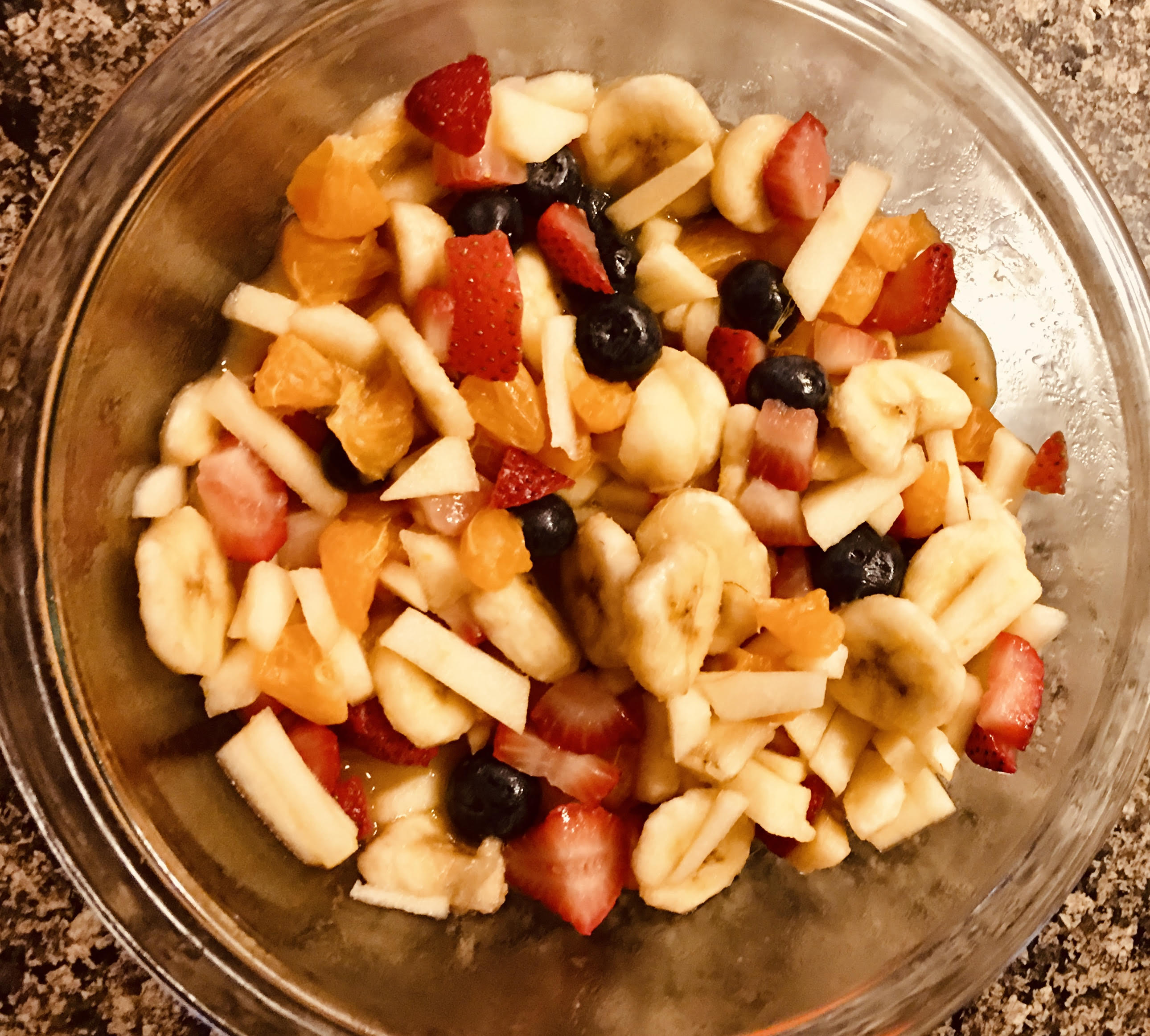Fruit chaat: Most Muslims from South Asian backgrounds know this simple but memorable delicacy that for some reason is only made during the month of Ramadan.
An elevated fruit salad, fruit chaat is a refreshingly cool side dish enjoyed after a 16-hour fast from food or water. Younger generation Muslims tend to prefer this dish on the sweeter side, while many older Muslims prefer it in the traditional sense – spiced with black pepper, salt, and garaam masala.
As I cut fruit two Fridays ago, preparing for the first iftaar of Ramadan, I considered how COVID-19 has interrupted many Muslim traditions.
Mosques remain closed and family gatherings are suspended. Due to the global pandemic, the usual sense of community or ummah, is now solely within a home rather than traversing social circles and extended family. For the more than 3.4 million American Muslims—for whom practicing Ramadan may already be socially isolating – social distancing only further exacerbates the isolation.
Like many American Muslims my age, I am a first generation American. My generation endured hatred following the 9/11 terrorist attacks and the need to defensively adopt an attitude of apology for others’ actions.
Growing up north of Dallas as a Muslim minority, I also thought it was normal to apologize to my non-Muslim peers that I could not participate in going to the movies at sundown, attending birthday lunches, and outdoor physical activities because they conflicted with my practice of fasting during Ramadan.
Throughout childhood and adolescence, the foundation for my Muslim identity was in my home and the homes of our close family and friends. In these homes, we did not need to apologize for being Muslim. Standing in the mosque, shoulder to shoulder, during taraweeh prayers, I found strength among my community during those 30 nights of Ramadan.
But this Ramadan, there are no gatherings with family or friends or nights in the mosque. My Muslim community is now limited to my home, my husband and 17-month-old son.
To be sure, we can virtually be together, as can all members of all other faiths practicing community in isolation. But as a Muslim in America, the absence of in person community is profound, especially this month.
Unlike residents of Muslim countries, or those living in U.S. cities with a significant Muslim population such as Dearborn, Michigan, most American Muslims do not hear the adhan, or call to prayer five times a day, regularly congregate for prayers, or share meals together on a consistent basis.
Even during Ramadan, most American Muslims continue their normal daily routines of going to work, providing child or elder care, and carrying out their personal and professional responsibilities. While fasting, we still attend mealtime business meetings, school events, and celebratory events.
What makes the month of Ramadan different from our normal practices, are the traditions of gathering as a community, while breaking fast, partaking in charity, praying together, and simply, feeling unified.
As members of a religion that is often misconstrued and misunderstood, Muslims need this communal experience to feel acknowledged and validated. However, this Ramadan will focus on the individual experience rather than one rooted in community.
It’s not an experience that is completely unfamiliar to American Muslims – like me–who may remember eating their pre-sunrise meal, suhoor, by themselves in a dark college dorm room, careful to not wake up their roommate, or breaking fast at sunset in between tasks to wrap up the workday.
This Ramadan, we can hope that while focusing more on our individual practice as Muslims in this unprecedented time, we may continue to grow stronger as a Muslim community. And for now, my fruit chaat, sweetened, will serve my small family at home.
It is bittersweet.


